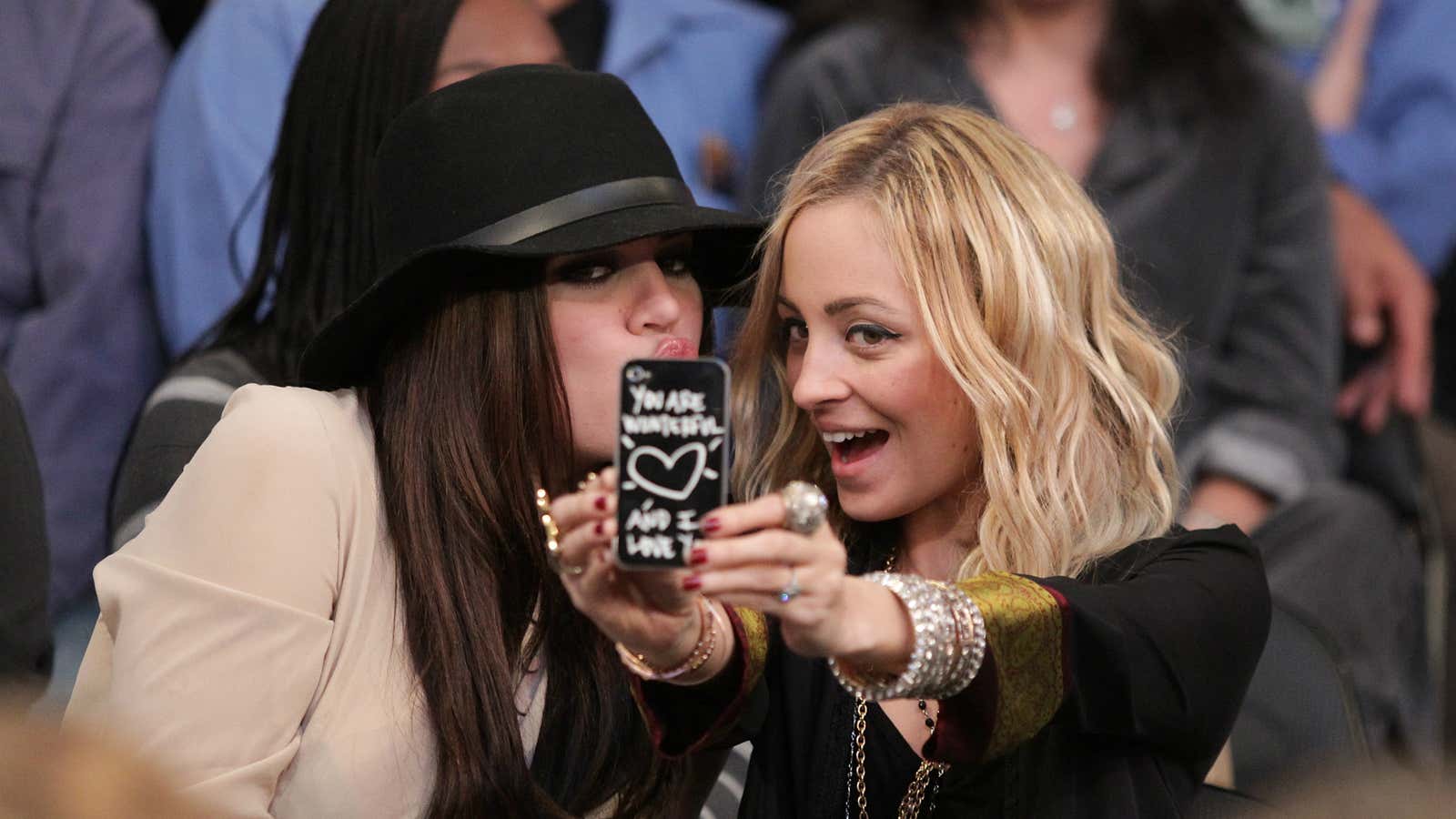We are in the midst of a “narcissism epidemic,” concluded psychologists Jean M. Twnege and W. Keith Campbell in their 2009 book. One study they describe showed that among a group of 37,000 college students, narcissistic personality traits rose just as quickly as obesity from the 1980s to the present. Fortunately for narcissists, the continued explosion of social networking has provided them with productivity tools to continually expand their reach — the likes of Facebook, Twitter, Pinterest, Foursquare, and occasionally Google Plus.
Evidence for the rise in narcissism continues to come up in research and news. A study by psychologist Dr. Nathan DeWall and his team found “a statistically significant trend toward narcissism and hostility in popular music” since the 1980s. Shawn Bergman, an assistant professor of organizational psychology at Appalachian State University in Boone, North Carolina notes that “narcissism levels among millennials are higher than previous generations.”
Researchers at Western Illinois University measured two socially disruptive aspects of narcissistic personalities — grandiose exhibitionism and entitlement/exploitativeness. Those who had high scores on grandiose exhibitionism tended to amass more friends on Facebook. Buffardi and Campbell found a high correlation between Narcissistic Personality Inventory (NPI) scores and Facebook activity. Researchers were able to identify those with high NPI scores by studying their Facebook pages.
Elias Aboujaoude, a professor of psychiatry at Stanford, notes that our ability to tailor the Internet experience to our every need is making us more narcissistic. He observes, “This shift from e- to i- in prefixing Internet URLs and naming electronic gadgets and apps parallels the rise of the self-absorbed online Narcissus.” He goes on to state that, “As we get accustomed to having even our most minor needs … accommodated to this degree, we are growing more needy and more entitled. In other words, more narcissistic.”
In virtual space many of the physical interactions that restrain behavior vanish. Delusions of grandeur, narcissism, viciousness, impulsivity, and infantile behavior for some individuals rise to the surface. Aboujaoude, in his book Virtually You, observes, “the traits we take on online can become incorporated in our offline personalities.” Just as members of a mob get swept along by others’ emotions, the same thing can happen to us when we get swept up in a virtual Internet mob.
Beyond the basic social media platforms that narcissists use to display themselves, there is a small but growing support industry they can turn to for help and advice. Articles are abound providing advice on how to build fan bases on Facebook and get books reviewed on Amazon. Services allow the purchase of page views, Youtube plays, and fake social media followers of all kinds.
We suspect part of the rise in narcissism is being driven by Internet tools. What is clear is that social media platforms are frequently used by those with narcissistic tendencies to feed their egos. These same applications are used by millions of others to build their businesses, coordinate events, and maintain close ties with friends and families.
Unfortunately, narcissists are setting many of the benchmarks for everyday users. Everyday users get caught up in popularity contests and experience anxieties; some report becoming depressed because they are being out-Twittered and are lacking in thumbs ups.
Social media are an important part of the lives of hundreds of millions of users around the world. If you are one of them, maintaining perspective is important. Do not let narcissists set your standards. You may be lagging far behind in the social media rat race because your NPI (Narcissistic Personality Inventory) score is not high enough. The reason you may not have thousands of followers on Twitter and friends on Facebook is because you are normal. Normalcy is a benchmark any narcissist should aspire to achieve.
